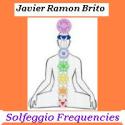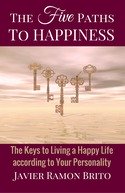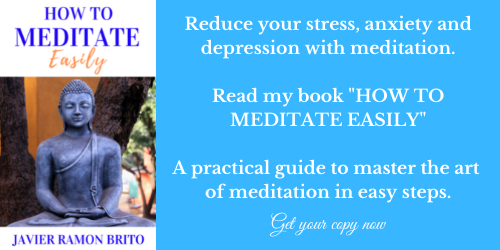The Algorithm of Unhappiness
How Our Society, Economy, and Technology Create Suffering
By Javier Ramon Brito

This is the first component of what I call the Algorithm of Unhappiness.
The Pursuit of Success and the Trap of Comparison
The truth is that in a world driven by competition and scarcity, only a few can reach the top. Corporations dominate entire industries, and opportunities are often locked behind immense barriers. Yet the message people receive every day—through advertisements, movies, and social media—is that if they just work hard enough, they too can “make it.” This of course fuels unrealistic expectations.
The problem? When these expectations collide with reality, people are left feeling inadequate. The goalposts keep moving. Even when someone achieves a milestone, there's a more glamorous one ahead. This endless chase causes frustration, disappointment, and eventually burnout in most people. When our self-worth is tied to results in a game rigged against us, mental suffering is inevitable.
Social Media: The Engine That Feeds the Illusion
Social networks were once imagined as tools for connection, friendship, love, and authentic self-expression. But what they have become is something very different: sophisticated machines that monetize attention and manipulate emotions. Their algorithms are not really designed to reward value or truth—they are designed to maximize profit. Visibility is no longer organic; it is pay-to-play.
So when a user shares something heartfelt or meaningful, the algorithm may suppress it unless it meets specific engagement triggers—or the user pays for visibility. As a result, people often find their words, art, and thoughts buried in digital silence.
This silence sends a psychological signal to your mind: “You are not enough.” It is not just a lack of likes or comments—it is an absence of acknowledgment. The human brain, wired for social validation, interprets this as rejection. Over time, this compounds into anxiety, self-doubt, and even despair.
Thus, social media algorithms become feedback loops of low self-worth—an integral component of the algorithm of unhappiness.
The Cultural Addiction to Validation
No one can deny that in the West, the need for external validation is deeply ingrained. From childhood, people are rewarded for performance, not presence; for achievement, not contentment. The education system ranks children, advertising shapes your desires, and culture teaches you that worth must be earned.
Breaking free from this system is not easy. Even knowing how destructive it is, people often feel powerless to escape. They seek meaning in the very structures that rob them of it.
The Buddhist Way: An Antidote to the Algorithm
There is, however, another path—one that exists outside this algorithm entirely.
Buddhist monks, and those who follow similar spiritual contemplative traditions, live with radically different values. They do not chase validation, status, fame or wealth. They do not measure their worth by likes or accolades. Their practice is rooted in detachment, self-awareness, and the rejection of unnecessary craving.
Through mindfulness, meditation, and simplicity, they have found something that most modern people struggle to even glimpse: peace. In Buddhism, suffering is said to come from attachment and craving. When you let go of what you do not need—especially the need to be seen—you begin to uncover your natural state: contentment.
Unlike the Western model, which fuels desire endlessly and monetizes insecurity, the Buddhist path teaches people to end the cycle of craving. And by doing so, they short-circuit the algorithm of unhappiness.
Conclusion: Rewriting the Code
We must realize that the algorithm of unhappiness is not just technological—it is cultural, economic, and psychological. It is deeply embedded in our institutions and reinforced by our modern tools. But like any system, it can be examined, understood, and ultimately rewritten.
Perhaps the real revolution will not come from inventing a better app, but from rediscovering ancient wisdom. Perhaps healing lies not in getting more, but in wanting less.
And perhaps, just perhaps, freedom begins when we stop chasing happiness in all the wrong places—and instead, start unlearning the algorithm that told us we were never enough.



Your second block of text...
7-DAY MEDITATION
MASTERY
• Calm your stress• Meditate like a Monk
• Enter Alpha Mind State
• Balance your 7 Chakras
• Improve your wellbeing

SOUND HEALING
in 7 minutes

& Body organs

Therapy

with 38 Bach Flowers
in Sound form

Alpha, Beta, Theta,
Delta or Gamma
in 10 minutes

SUBLIMINAL AUDIOS
& Abundance
into your life

ONLINE MEDITATION CLASS
Reduce stress & anxiety, improve focus and sleep better

E-BOOKS TO AWAKEN
Life Purpose

your personality type

HEALING MUSIC
7 Chakras

Music

on your videos

Music for Healers
(Android version)

Music for Healers
(iOS version)

MEDITATION ONLINE
(Alpha & Theta)

PROFESSIONAL SERVICES
custom-made

one-to-one, online










